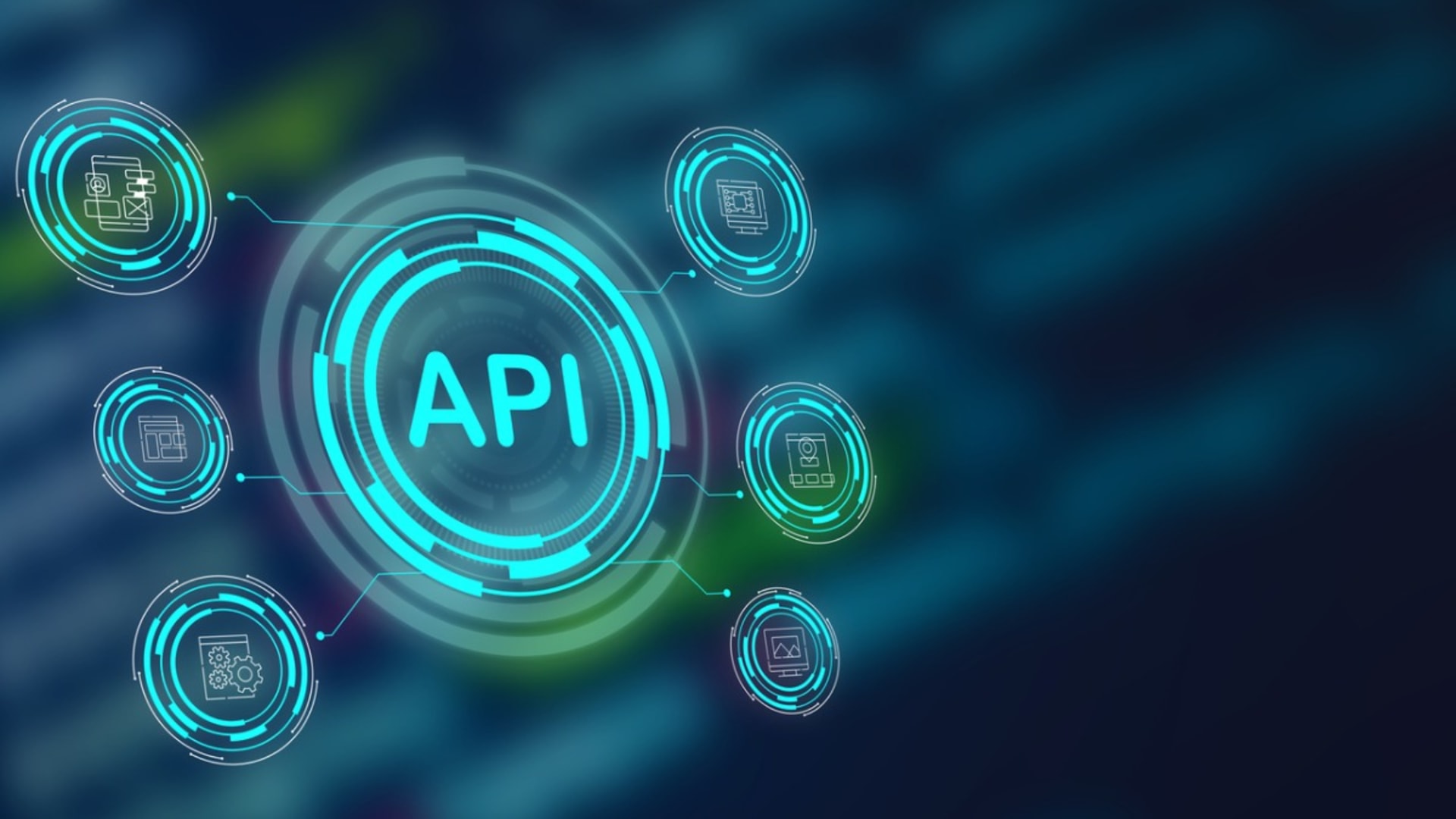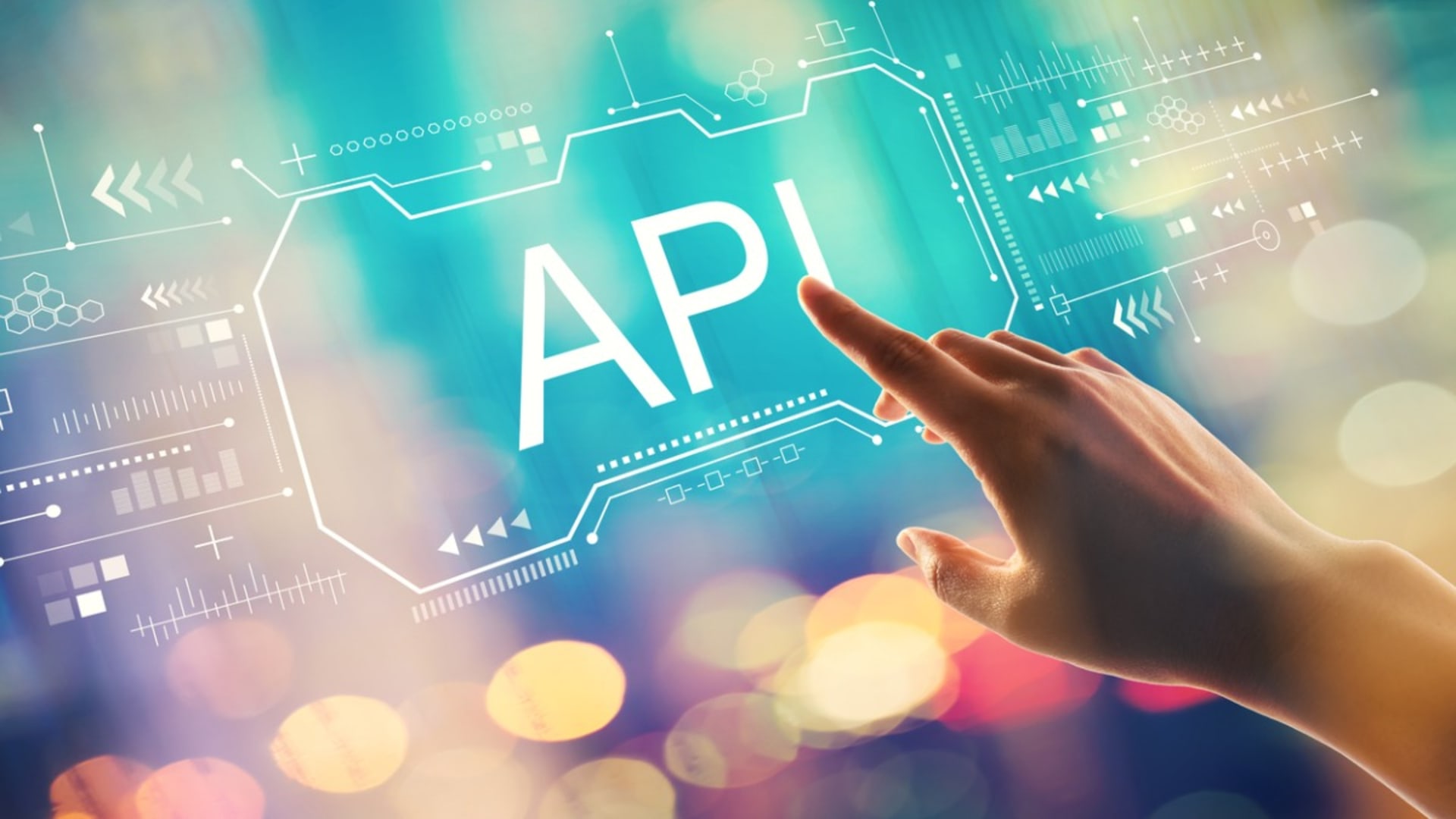- Home
- Technologies
- API
- Hire API Developers
Hire API Developers
Hire vetted API talent.
Our top 1% of tech talent has already undergone a rigorous vetting process. Get bilingual, nearshore API developers on your team within 2 weeks.
500+ companies rely on our top 1% tech talent.
No time to find the top talent yourself? Skip the hassle of recruitment.




The Ultimate Guide for Hiring API Developers
APIs serve a critical function in today's modern technology landscape. They act as bridges between software programs, facilitating communication and enabling these systems to work together. Because they are so important in software development projects of all types, you need to find the best API developers for your team.
We know that's no easy feat. We've been recruiting and hiring skilled API developers for more than 1.5 decades, identifying the top 1% of talent. Based on our experience, we crafted this guide to help you find the right API developer for your projects and team. You'll find key considerations, technical and soft skills to look for, sample interview questions, and frequently asked questions about the hiring process. You'll be better equipped to find not only the highest level of technical talent but also the right fit for your company.
Before You Start Hiring
Project or Team Requirements
Consider the requirements of your project and team. What types of projects will the API developer be working on? Will a general web developer suffice, or do you need an API specialist? These are the types of questions to ask yourself before beginning your search. Also, look at your current team. Where are the gaps? What skills should the API developer have that are missing?
Modernization
The API development landscape is constantly evolving. Skilled API developers stay current with the changing field, keeping abreast with newer trends and practices. As you start the hiring process, look for API developers who emphasize continual learning and professional development.
Industry Experience
Experience in your industry will allow an API developer to have a deeper understanding of your needs and the demands of your niche. For example, they will have knowledge of regulations and legal requirements governing your specialty, which will better inform their work.
Timeline and Budget
If you're hiring an API developer for a specific project or length of time, your timeline will guide the hiring process. Additionally, budgetary constraints may play a role in the experience level you're looking for—senior, mid-level, or junior developer.
Portfolio and References
Learn more about the candidate's background and experience by exploring their portfolio and references. This will also give you insight into the types of projects they've worked on in the past, their skill level, how they collaborate with team members and stakeholders, and other important factors.
25 Skills Every API Developer Should Have
Application Programming Interfaces (APIs) are sets of tools, protocols, and routines for developing software. Developers specializing in this niche design, build, and maintain APIs, enabling seamless data exchange and communication between various systems. Given that these tools play such an essential role in the digital ecosystem, API developers are central to creating functional and user-friendly software.
While there are certain skills that are project or organization-specific, there are others that any qualified API developer should have. Here are 26 important technical skills and soft skills you should look for during the hiring process.
Technical Skills to Look for in Your Ideal API Developer
1. Understanding of API Design Principles
RESTful APIs, GraphQL, and API modeling languages like OpenAPI and RAML are all important skills for these professionals. Developers should also have expertise in API integration and additional API paradigms.
2. Proficiency in Programming Languages
An API developer must be well-versed in server-side programming languages like Python, Java, C#, or JavaScript with Node.js. They should also have an understanding of asynchronous programming frameworks and concepts.
3. Understanding of Web Technologies
Knowledge of web application frameworks and other web technologies is important for enhancing the API and overall web development process. API developers will contribute to building a complex and feature-rich web app while speeding up the development process and creating reliable code.
4. Database Management
Database management is foundational for API functionality and development. API developers should be able to design, query, and manage both SQL and NoSQL databases. They should understand data modeling and transaction management.
5. Security Practices
In a landscape rife with cybersecurity threats, a deep understanding of security threats (OWASP Top 10) and how to mitigate them is critical. API developers should have knowledge of authentication and authorization mechanisms such as OAuth, OpenID Connect, and JWT.
6. Version Control Systems
Version control systems, particularly Git, are important for source code management and a collaborative work environment.
7. API Testing and Documentation
API developers should have experience working with different types of API testing tools and methodologies, such as unit testing, load testing, and integration testing. They should also have experience with approaches like test-driven development (TDD) and creating clear API documentation.
8. Understanding of Networking Concepts
An understanding of networking concepts impacts the design, development, and deployment of of APIs. An API developer should have a basic knowledge of HTTP/HTTPS protocols, web servers, and networking principles. They should be familiar with DNS, SSL/TLS, and other internet protocols.
9. Cloud Computing Platforms
Cloud computing services such as AWS, Azure, and Google Cloud are useful for deploying and managing APIs. Developers should understand cloud-native services, serverless architectures, and containerization technologies like Docker and Kubernetes.
10. API Management Tools
API management tools include various platforms for developing, documenting, publishing monitoring, and securing APIs. These tools are important for managing the entire lifecycle of an API.
11. Continuous Integration/Continuous Deployment (CI/CD)
Knowledge of CI/CD pipelines and tools like Jenkins, GitLab CI, and CircleCI is helpful for automating testing and deployment processes. API developers should have an understanding of build tools, artifact repositories, and deployment strategies.
12. Microservices Architecture
An understanding of the principles and patterns of microservices architecture is important for API developers because it leads to better scalability and faster development of software.
13. API Gateway Integration
Developers should be able to configure and manage API gateways in order to route, secure, and monitor API traffic.
14. Containerization and Orchestration
Containerization and orchestration address challenges associated with deploying, managing, and scaling applications in dynamic, distributed environments. An API developer should be able to use tools like Docker for packaging and running applications and Kubernetes for managing containerized applications at scale.
15. API Rate Limiting and Throttling
The ability to implement rate limiting and throttling mechanisms protects APIs from overuse and abuse, ensuring that they are available and reliable.
16. API Caching Strategies
Knowledge of caching technologies and strategies helps improve API response times and reduce backend load.
17. Performance Optimization
Strong performance is paramount for software development. API developers should be able to identify and optimize performance bottlenecks in API responses, such as database queries, code execution, and resource allocation.
18. API Versioning Strategies
API versioning strategies, such as URI versioning and parameter versioning, are important for API developers to know. They should also understand their implications for API maintenance and consumer adoption.
19. WebSockets and Real-time Communication
WebSockets and other real-time communication protocols are useful for building interactive and live-updating web applications.
20. Internationalization and Localization
In order to support multiple languages and regions, the developer should have knowledge of implementing internalization and localization in APIs.
21. API Analytics and Monitoring
Continuing to monitor and assess the performance and usage of APIs —as well as errors—will better inform decision-making and enable improvements in the future.
Soft Skills to Look for in Your Ideal API Developer
22. Problem-Solving
Problem-solving is an important skill for API developers because it affects their ability to design, deploy, implement, and maintain APIs. It's not only important for overcoming challenges but also for finding creative solutions and ways to improve their performance.
23. Communication
Communication is essential for API developers. It allows them to grasp requirements, maintain effective and comprehensive documentation, understand and give feedback, and support and work with team members and stakeholders.
24. Collaboration
API developers seldom work alone. These developers need to collaborate with front-end developers, back-end developers, security experts, database administrators, and other team members. Being able to collaborate with both tech professionals and non-technical professionals, including stakeholders, is essential for an API developer.
25. Mentoring
Being able to support and mentor others is an important skill for API developers. This is especially true for a senior or lead developer, but junior developers can often teach peers and more seasoned developers as well.
22 Questions to Identify Top API Developers
When interviewing API developers, it's important to ask questions that first assess the candidates' technical skills and knowledge. Employers will also usually conduct a coding test to further assess specific on-the-job knowledge.
The following set of questions aim to uncover not only the developer's technical knowledge but also their problem-solving abilities, teamwork, communication skills, and adaptability—all crucial traits for success in a collaborative environment.
Here are a few examples of technical interview questions:
1. What is REST and how does it compare to SOAP?
To ensure security in APIs, I implement authentication and authorization leveraging standards like OAuth 2.0, JWT for secure token handling, HTTPS for secure communication, input validation to prevent SQL injection and XSS attacks, and rate limiting to prevent abuse.
3. What are idempotent HTTP methods and why are they important?
Idempotent HTTP methods are HTTP methods that can be called many times without producing different outcomes. Some examples are GET, PUT, and DELETE. This property is essential for ensuring that API systems are reliable and that retrying requests does not cause unintended effects.
4. What is the concept of API throttling?
API throttling limits the number of API requests a user can make in a specific time period in order to prevent the overuse of resources. It is critical for ensuring that the API is available and reliable.
5. Describe your experience with API rate limiting. What strategies did you use?
I have implemented server-side rate limiting using either a fixed window, sliding log, or token bucket algorithms. I apply rate limiting at the application or API gateway level to protect resources from overuse.
6. How do you version your APIs?
I version APIs through the URL path, query string, or request headers to maintain backward compatibility while introducing new features or making changes.
7. What's the difference between GraphQL and REST?
GraphQL and REST are two different approaches for building web services. They are both popular, but they differ in terms of how they operate and manage data. GraphQL is a query language for the API and a runtime for executing these queries using a type system you define for your data. GraphQL APIs usually expose a single endpoint and respond to queries with the data the client requested. REST, meanwhile, is an architectural style that exposes fixed data structures via endpoints.
8. What is OAuth, and how have you implemented it in past projects?
OAuth is an open standard for access delegation. It is leveraged as a way for users to grant websites or applications access to their information on other websites without having to give them their passwords. In the past, I have secured APIs using OAuth 2.0 flows like Authorization Code Grant or Client Credentials Grant.
9. What approach do you take to documenting APIs?
To document APIs, I use tools like Swagger (OpenAPI) or RAML. I ensure that I keep my documentation up to date.
10. How do you test and validate your APIs?
I test and validate my APIs by using automated testing tools like Postman, SoapUI for functional testing, and JMeter for load testing. I also write unit and integration tests. Additionally, I follow a test-driven development (TDD) approach.
11. How do you handle backward compatibility in API development?
I handle backward compatibility in API development by leveraging strategies such as versioning, using deprecation policies, providing clear migration paths for API consumers, and maintaining old versions for a certain period of time.
12. What is a microservices architecture, and how does it affect API development?
Microservices architecture is a style of architecture where applications are made up of small, independent services that communicate through well-defined APIs. This impacts API development by increasing the importance of clear contracts, robustness, and independent scalability.
13. What tools do you use for monitoring and logging API usage?
To monitor and log API usage, I use tools like Splunk, ELK stack (Elasticsearch, Logstash, Kibana), Prometheus for monitoring, and Grafana for dashboards. I also have experience with cloud provider tools like AWS CloudWatch, Azure Monitor, and Google Cloud Operations Suite.
14. How do you ensure high availability and fault tolerance in your APIs?
I ensure high availability and fault tolerance in my APIs by implementing load balancing, replication, health checks, and automatic failover. I also use cloud services and infrastructure designed for high availability.
15. Describe a challenging API problem you solved and how.
This question gives insight into the candidate's ability to problem solve and flex their creative muscles.
16. What is your experience with API-first design practices?
API-first design principles prioritize creating APIs at the start of the development process. This process is gaining popularity, and a candidate should have experience with the approach.
17. How do you stay updated with the latest trends and updates in API development
Any software developer must stay abreast of updates and trends in their field. This question will help you assess the developer's willingness and ability to keep up to date with current practices in API development.
18. How do you approach working on a project with unclear or evolving requirements?
API projects don't always go as planned. By asking this question, you'll get a better sense of the candidate's adaptability and ability to pivot when expectations change.
19. Describe a situation where you had to work closely with other developers or departments on an API project.
Collaboration is central to the API development and overall software development process. You will better understand how they work with other team members, including fellow developers, QA engineers, UX designers, and others.
20. Describe a time when you had to explain a complex API problem to a non-technical stakeholder. How did you ensure they understood?
Tech professionals often need to explain their work to non-technical audiences. You should gain insight into their ability to describe complex technical processes and information to laypeople.
21. How do you prioritize tasks when working on multiple API projects simultaneously?
Developers often need to juggle multiple priorities. This will help you better understand the candidate's time management and prioritization methods, as well as their ability to collaborate and coordinate with other team members.
22. Tell me about a time you received critical feedback on your API work. How did you respond?
API developers should be able to accept constructive criticism and learn from it. The candidate's response to this question will help you evaluate their attitude toward critical feedback and willingness to improve.
FAQ
What technical skills should I look for in an API developer?
There are many technical skills to look for in an API developer. They should have proficiency in server-side programming languages, such as JavaScript with Node.js, Python, and Java. They should also understand and have experience with RESTful principles and GraphQL, database management, security practices, version control systems like Git, and testing and documentation tools. Seasoned or senior API developers may have skills such as microservices architecture, cloud computing platforms, and containerization technologies.
How can I assess an API developer's expertise during the interview?
There are several ways to assess an API developer's expertise during the interview. For example, you might ask about the candidate's experience with designing and developing APIs, specific projects they've worked on, their familiarity with API security measures, and their preferred development approach. You can also pose hypothetical scenarios and real-world problems to assess their problem-solving skills. Consider having the candidate complete a technical test to evaluate their coding skills and knowledge of best practices as well.
How important is experience with cloud platforms for an API developer?
Experience with cloud platforms is very important for an API developer. Many APIs are hosted on or interact with cloud-based services. API developers should be familiar with AWS, Azure, and/org Google Cloud Platform in order to develop scalable and resilient APIs. This is also important for leveraging cloud-native services and understanding deployment and operational processes in a cloud environment.
Can an API developer work remotely, and what are the considerations?
API development is well-suited to a remote environment. Skilled developers should be able to work effectively off-site, as long as they maintain regular communication with team members and stakeholders, have the necessary tools for working remotely, and understand the expectations regarding availability and productivity.
How do I find the right API developer for my team?
When looking to hire API developer talent, consider different models. You can find API developers via many approaches. For example, if you outsource API development services, you can extend your reach globally and tap into key specializations, as well as improve efficiency while lowering costs. You can also work with freelance API developers if you have short-term projects or don't need a full-time software developer.

- Hire API Developers
How Businesses Can Overcome the Software Development Shortage
BairesDev Ranked as one of the Fastest-Growing Companies in the US by Inc. 5000










